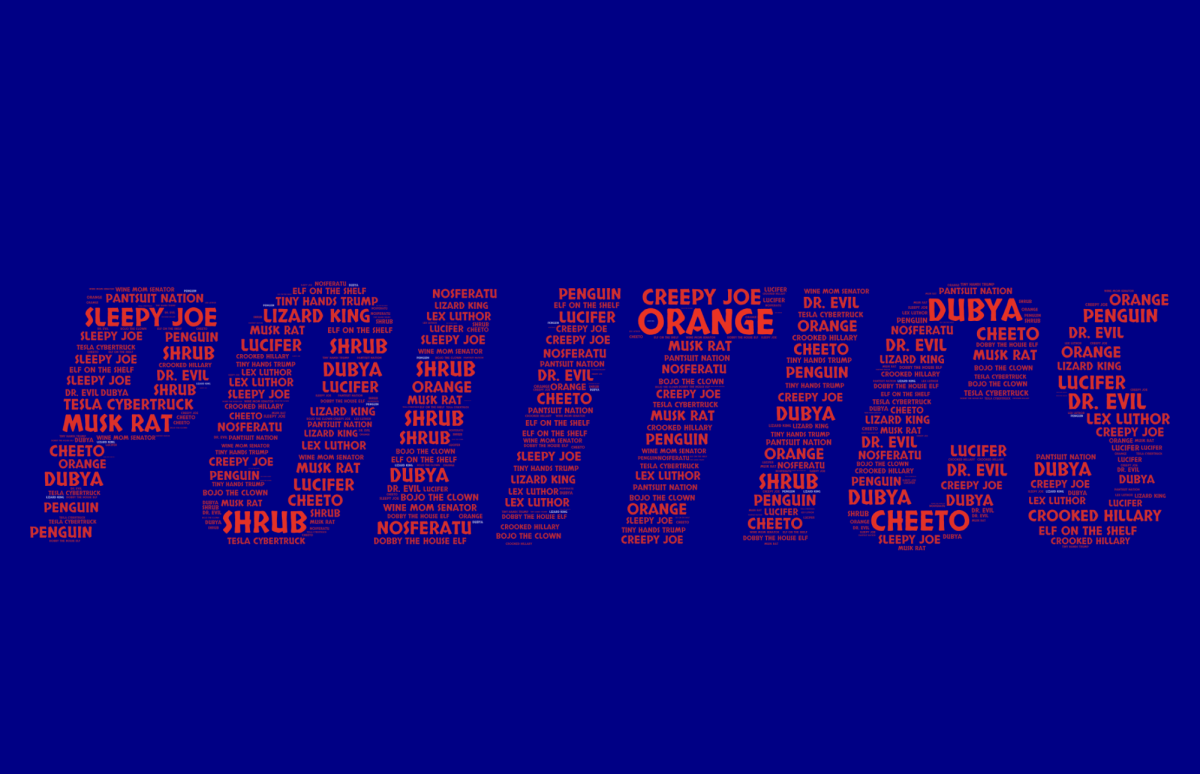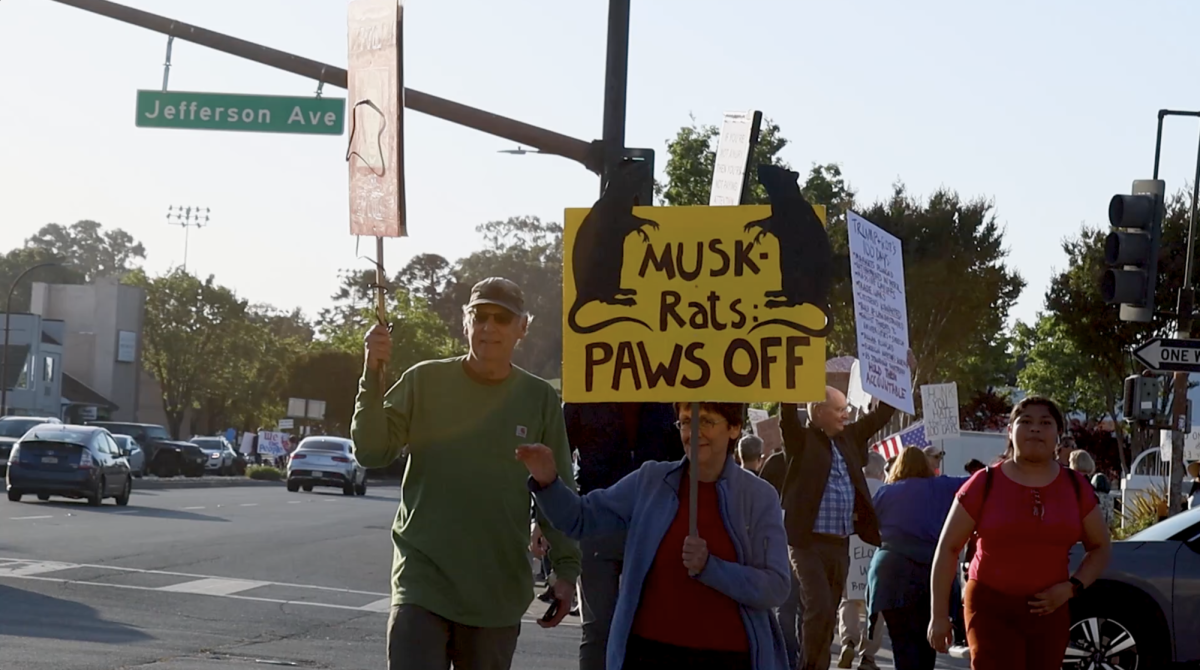In decades past, mainstream political criticism emerged through journalistic political cartoons that criticized governmental corruption, partisan newspapers that championed objectivity and televised presidential debates that millions tuned into. Today, filtered through engagement-seeking and sensationalist platforms like X, Instagram and TikTok, political criticism has taken the form of thousands of daily political posts.
The points that these posts try to prove have shifted as well, broadening to focus on superficial insults that emphasize politicians’ characters rather than what they do. Social media is now home to memes that call Donald Trump orange, Joe Biden “Sleepy Joe” or imply that Elon Musk is shaped like his beloved Tesla Cybertrucks. Mainstream political coverage has become recreational, as political meming has undermined legitimate criticism.
Political criticism has been a consistent way for citizens to point to governance issues and offer potential solutions. Using language that mocks appearances is a cheap deviation from the heart of criticism and a distraction from conversations we could be having about poor policy, resulting in weaker public understanding of how the government works. Meming does nothing new in its cynicism of the government and fails to propose alternative ideas. Unlike journalistic editorial cartoons that are designed to be thought-provoking, memes can be created by anyone and are designed for virality. They also allow politicians to skate under their actions — posting recreational insults rather than focusing on what public figures do fails to educate the masses on real policy consequences.
Social media’s ability to like, share and comment ensures that news on the platforms travels quicker than nuanced, well-informed claims from more reliable sources. Political takes become easier to digest for wider audiences, allowing for quicker agreement but not increased deliberation. Rather than consulting their own research, easily accessible beliefs may lead to people adopting stances and affiliations they don’t understand. The relevancy of politics makes critically engaging essential, rather than jumping from one take to another.
Superficial mockery also falls flat as a learning tool. Satirical news, including sites like The Onion, as well as mockery, even when equally informative to “regular” news, doesn’t lead to more learning for consumers. Instead, regular news, if suitably educative, is better for grasping research. Especially when targeting political actors rather than issues, mockery is more likely to serve as entertainment than education.
Superficial memes also feed into confirmation bias, where viewers choose content that fit their ideologies and validate party identity, reinforcing that their ideas alone are correct. Algorithms seek sensational works over substantive discourse in their search to maximize engagement, so feeds amplify beliefs rather than offer alternatives. Seeing opposing perspectives helps avoid dehumanization of the other side. It also decreases the risk of misinformation, since a lack of counterarguments or fact-checking can cause virality of content that fits the user’s algorithm despite faulty facts. The echo chambers social media enforces results in deeper polarization, since mockery seeks to ridicule the other side. Following Charlie Kirk’s assassination, both the left and right erupted, leading to charged language filled with incendiary labels that painted one side as inhumane and the other as fascist.
However, satire has been a long-enduring form of political criticism, and cannot be fully discounted just because it’s “less serious.” Memes are understandable in ways more nuanced takes might not be, and encourage exposure and critical thinking. Sometimes satire does lead to activism — when comedian John Oliver published a satirical piece on net neutrality on HBO’s Last Week Tonight with John Oliver, the Federal Communications Commission saw an increase of thousands of comments from users chiming in support for current net neutrality laws after an announcement of their reconsideration. But once the satire strays into hateful mockery and blatant resentment, it loses its potential to truly inform. Rather than criticism backed by research, it falls into tired tropes that, though funny, fail to address what political criticism should.
Mockery cannot be a substitute for informed political criticism. If name-calling doesn’t fly on the playground, using bullying as a proxy for researched takes isn’t something we should accept. When we criticize politicians, we need to choose sources that don’t use someone’s features to discount their competence. Reposting these memes should not be considered activism when all they do is delegitimize the issue. Rather than relying upon the memes we ingest on social media, when it comes to political criticism we need to push for informed sources that further education.
This story was originally published on El Estoque on September 27, 2025.





































